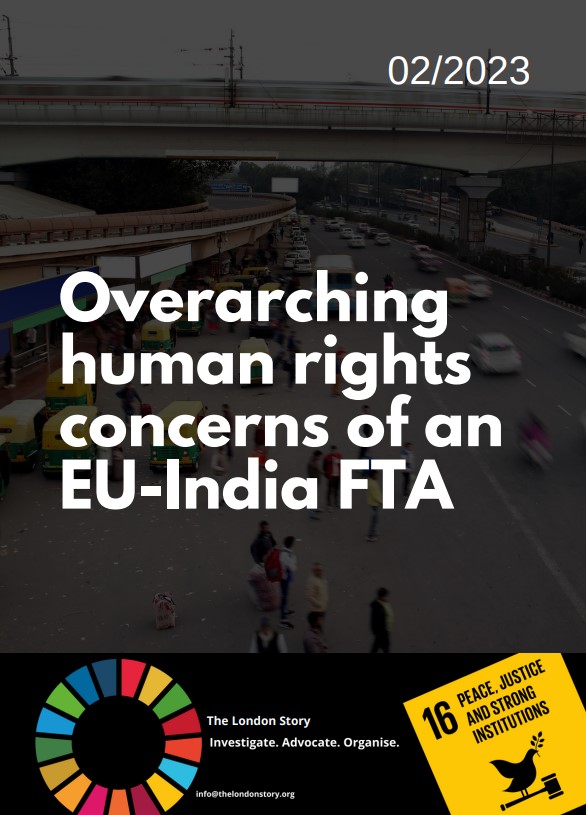This dossier addresses preliminary human rights concerns of a trade negotiation – from negotiating table to implementation of the written document – between the European Union with India. It therefore covers one branch of the terms of reference of the sustainability impact assessment (SIA) conducted by Trade Impact B.V. It has no ambition of being comprehensive and should be treated as preliminary guidance on overarching concerns. Concerns were crowdsourced from Indian civil society actors, human rights defenders and Indian diaspora concerned about the state of human rights and democracy in India.
Main conclusions:
- The FTA cannot proceed without good-faith consultations with representative and diverse civil society representatives in India. There must be both ex ante and ex post human rights monitoring mechanisms, in which civil society must be actively facilitated as opposed to persecuted, as noted in the TSD review. While the European Economic and Social Committee expects that civil society organisations should deliver timely, well substantiated and evidence-based contributions, this is not possible under the current persecution.
- The TSD chapter must strongly emphasise enforceable human rights protection, including sanctions. Violations of the TSD chapter must also be subject to enforceable sanctions (at least s a last resort), and TSD chapter violations must fall under the scope of the FTA’s dispute resolution mechanism, as also put forward by the European Economic and Social Committee and the European Parliament. Violations of the TSD chapter must be remediable even if these did not affect trade or investment between the parties, as violations of labour rights are often done in order to increase profits and trade efficiency.
- Not only the final FTA, but the entire trade negotiation process must repeatedly and seriously discuss human rights concerns. Trade cannot be treated in silos. The EU risks violating its own obligations under Article 21 TEU and thereby jeopardising its foreign policy interests if it does not mainstream human rights in all its engagements.



